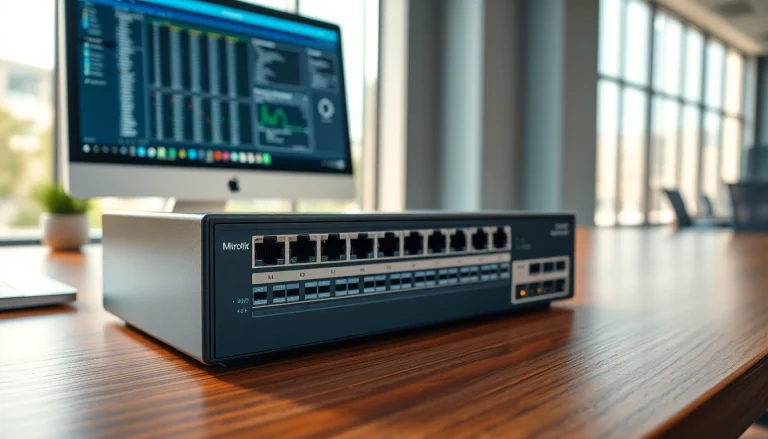
Understanding Anxiety: Causes and Effects
What is Anxiety?
Anxiety is a natural human emotion characterized by feelings of tension, worried thoughts, and physical changes like increased blood pressure. It can be a normal response to stress or a signal of an underlying problem when it becomes excessive. According to the American Psychological Association, anxiety is defined as an emotion characterized by feelings of tension, worried thoughts, and physical changes like increased blood pressure. While feeling anxious occasionally is a part of life, for some people it can become a debilitating condition that affects their ability to perform daily tasks.
Common Triggers of Anxiety
Anxiety can be triggered by a variety of factors, which can be categorized into environmental, biological, and psychological triggers. Environmental triggers might include stressful life events such as job changes, financial difficulties, or relationship issues. Biological factors could involve genetic predispositions or changes in brain chemistry that affect mood. Psychological triggers often relate to thought patterns; for instance, perfectionism, negative self-talk, or fear of failure can exacerbate anxious feelings. Understanding these triggers is a critical first step in the process of dealing with anxiety, as it allows individuals to recognize what specifically affects them and to explore coping mechanisms tailored to their unique situations.
Physical and Emotional Effects of Anxiety
Anxiety does not manifest solely on an emotional level; it also brings a host of physical symptoms that can disrupt a person’s life. Common physical symptoms include a racing heart, sweating, trembling, fatigue, headaches, and gastrointestinal issues. Emotionally, anxiety can lead to feelings of isolation, frustration, and helplessness. It is not uncommon for those dealing with significant anxiety to experience depressive episodes as well. Recognizing these symptoms early can help individuals seek treatment and implement lifestyle changes that can mitigate these effects.
Popular Techniques for Dealing with Anxiety
Meditation and Mindfulness Practices
Meditation and mindfulness are practices designed to bring a sense of calm and clarity. Regular meditation can lower anxiety levels by promoting relaxation and helping individuals focus on the present moment rather than worrying about the past or future. Mindfulness practices encourage individuals to observe their thoughts and feelings without judgment, enabling them to distance themselves from their anxiety. Techniques such as guided imagery, body scans, and mindful breathing can be essential tools in managing anxiety.
Cognitive Behavioral Therapy (CBT)
Cognitive Behavioral Therapy (CBT) is a highly effective treatment for anxiety disorders. This form of therapy helps individuals identify and change negative thought patterns that contribute to anxiety. CBT typically involves working with a therapist to develop coping strategies, restructure negative thinking, and gradually expose oneself to anxiety-inducing situations in a controlled manner. By equipping individuals with practical tools to confront their fears, CBT empowers them to manage their anxiety more effectively over time.
Breathing Exercises to Alleviate Symptoms
Breathing exercises can be an immediate and effective way to combat anxiety symptoms. Techniques such as deep breathing, the 4-7-8 method, and diaphragmatic breathing can help regulate the body’s response to stress. These exercises focus on controlling the breath to calm the nervous system and promote relaxation. Regular practice of breathing techniques can not only alleviate acute anxiety symptoms but also contribute to overall stress management.
Daily Habits That Help Manage Anxiety
The Role of Diet in Anxiety Management
The food we consume has a profound impact on our mental health, including anxiety levels. Certain nutrients, such as omega-3 fatty acids, antioxidants, and vitamins B and D, play a crucial role in brain function. A diet rich in whole foods, including fruits, vegetables, whole grains, and lean proteins, can promote better overall health and potentially improve symptoms of anxiety. It’s also important to limit or avoid stimulants such as caffeine and sugar, as these can exacerbate anxiety symptoms.
Importance of Regular Exercise
Physical activity is another vital component in managing anxiety. Exercise is known to release endorphins—chemicals in the brain that act as natural painkillers and mood elevators. Regular exercise can help reduce stress, improve sleep, and enhance self-esteem, all of which contribute to alleviating anxiety. The Centers for Disease Control and Prevention (CDC) recommends at least 150 minutes of moderate-intensity exercise every week to promote both physical and mental health.
Sleep and Its Impact on Anxiety Levels
Quality sleep is critical for mental health and well-being. Poor or inadequate sleep can exacerbate anxiety symptoms, leading to a vicious cycle where anxiety interferes with sleep, and lack of sleep increases anxiety. Establishing a healthy sleep routine, incorporating relaxation techniques before bed, and creating an ideal sleep environment can improve sleep quality and, in turn, help manage anxiety. The National Sleep Foundation recommends aiming for seven to nine hours of sleep per night for optimal functioning.
Seeking Professional Help: When and How?
Identifying When To Consult a Therapist
Recognizing when to seek professional help is crucial for effective anxiety management. If anxiety interferes with daily life, relationships, or work, or if it leads to substance abuse or suicidal thoughts, it is essential to reach out to a mental health professional. The earlier a person seeks help, the better the chances are of reducing anxiety severity and developing effective coping strategies.
Types of Anxiety Treatments Available
There are various treatment options available for anxiety, and these can be tailored to individual needs. Psychological treatments such as CBT or exposure therapy are common approaches. Medications, including antidepressants or anti-anxiety drugs, may also be prescribed to help alleviate symptoms. Many individuals benefit from a combination of therapy and medication. Alternative treatments, such as yoga, acupuncture, or herbal supplements, may also provide relief for some people. Collaborating with a healthcare provider can help individuals choose the most effective treatment plan.
Insurance and Therapy Financing Options
Cost can be a significant barrier to accessing mental health care. Many insurance plans provide coverage for mental health services, including therapy. It’s important to verify what services are covered under your plan, including the type of therapy, number of sessions, and co-pays. For those without insurance, community mental health centers, non-profit organizations, or sliding scale options through private practices can provide affordable therapy options.
Building a Support System for Dealing with Anxiety
Importance of Community Support
Having a robust support system is vital for individuals dealing with anxiety. Surrounding oneself with friends, family, or peers who understand or share similar experiences can provide emotional support and validation. Participating in community groups or online forums focused on mental health can foster connection and reduce feelings of isolation. Building relationships and sharing experiences with others can offer insights and coping strategies that may be beneficial in managing anxiety.
How to Talk About Anxiety with Friends and Family
Communicating about anxiety can feel daunting, yet it is essential for receiving support. It’s helpful to approach the conversation openly and honestly, explaining how anxiety affects daily life and emotional well-being. Providing concrete examples about situations that trigger anxiety can help loved ones understand and support appropriately. Suggesting ways they can assist, whether through talking, being present during stressful times, or checking in regularly, can make them feel more equipped to help.
Online Resources and Support Groups
Various online resources and support groups are available for individuals dealing with anxiety. Websites such as the Anxiety and Depression Association of America (ADAA) and National Alliance on Mental Illness (NAMI) offer valuable information, coping strategies, and directories for finding local support groups. Online forums can also provide an anonymous space to connect with others who share similar experiences, fostering a sense of community and understanding.





